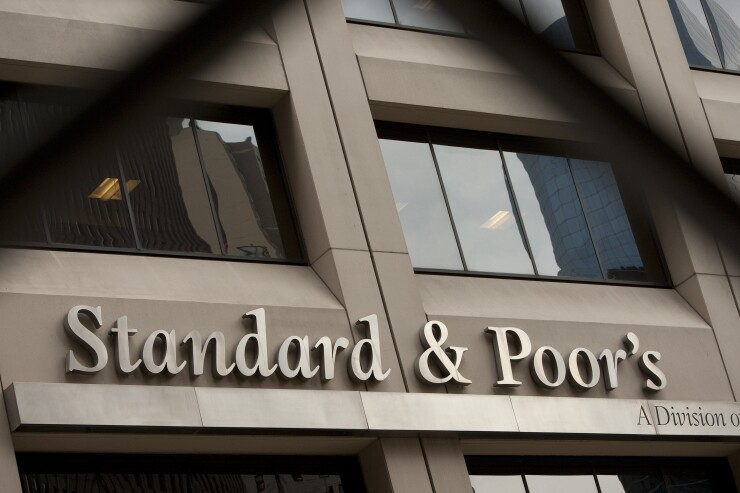Allen Park, Michigan, is back in investment grade territory.
On Thursday, S&P Global Ratings upgraded the city to BBB-plus from BB. S&P had previously upgraded the city to BB from CCC-plus in March 2017 after the city exited state oversight.
Allen Park had fallen into junk territory after struggling to pay bonds for a failed movie studio deal that helped land it under state oversight in 2012 while triggering Securities and Exchange Commission sanctions.

The rating agency credits the city’s strong budgetary performance and financial flexibility more than 12 months after exiting state oversight. The outlook is positive.
“The upgrade reflects the city's continued strong budgetary performance in its general fund, which has maintained a strong budgetary flexibility,” S&P stated. “The multi-notch movement is also attributable to management's demonstrated ability to achieve balanced operations, even following the elimination of state oversight in January 2017.”
S&P said there was a one-in-three chance that it could raise its rating by multiple notches over the next year "if the city maintains its strong financial profile, including producing a full audited year of structurally balanced results without state oversight."
The city, which had garnered national attention and faced SEC sanctions for its investment in failed movie studio, gained financial independence early last year after nearly four years of state oversight.
The Receivership Transition Advisory Board was appointed in September 2014 when the financial emergency was resolved to oversee the city's transition back to local control.
After the appointment of the RTAB, Allen Park accomplished an increase in the amount of the city's general fund balance. The city successfully passed a 10-year public safety millage and a 10-year road millage in November 2015.
The city has also made all required contributions into the pension and retiree healthcare systems, including an additional $500,000 annual payment toward other post-employment benefit liabilities.
Allen Park completed a successful tendering of 62% of the outstanding bonds used to fund the failed movie studio project for a savings of $1.1 million in 2015. An additional remarketing of the remaining amount was finalized in 2016, saving the city another $900,000. The bonds were issued through the Michigan Finance Authority.
The bonds were initially sold in 2009 and 2010 to finance the film studio at a time when the state had had country's most generous film tax-credit program.
Plans for the eight-stage studio soon fizzled after the state government reined in the credits. With no one leasing the vast facility, the city was forced to dip repeatedly into its general fund to cover the $2.6 million annual debt service on the project.
In addition to the bond debt, Allen Park also faced a chronic general fund deficit, severe cash-flow problems and political infighting.
In November 2014 the SEC charged the city, former Mayor Gary Burtka, and former city administrator Eric Waidelich with fraud in connection with the original $31 million bond deal sold in 2009 and 2010 to finance a movie studio project in the city.
The SEC found that offering documents provided to investors during the city's sales of the GO bonds contained false and misleading statements about the scope and viability of the movie studio project, as well as Allen Park's overall financial condition and its ability to pay debt service.
The city has roughly $60 million of debt of which 18% is covered by tax increment revenue streams while another 24% of its debt has legal provisions that ensure bondholders will be paid.





